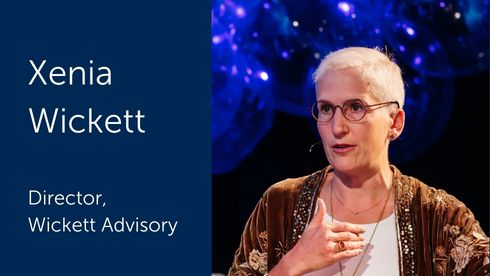Energy industry points to design phase as crucial to achieve a circular economy
94% of the respondents in a survey done by ONS and RENAS support a transition to a circular economy. At the same time close to 60% say they have little belief in the oil and gas industry becoming circular in the next five years. For the energy industry the design phase will be crucial no matter what.

Imagine a world with no insecurity concerning resources for energy production. Where we reuse our resources with minimal environmental impact. And not to forget, it is profitable. An ideal circular economy where we use our raw materials several times, and more efficiently.

“Thinking circular is about thinking holistic in terms of both value chains and product lifespans. We need to plan and design for optimal resource use and optimal solutions from the offset. The survey results highlight the energy industry’s strong intention to put action behind their words, so that all sectors can collaborate more effectively,” says Bjørn Arild Thon, CEO of RENAS.
94% of the respondents in a survey done by RENAS and ONS in connection with the ONS Conference and exhibition in Stavanger support a circular energy industry. But when they are challenged on different industries and speed, the gap between ambition and reality surely appears. While 58% say the renewable industry has a realistic chance of reaching a circular economy within the next five years, only 28% say the same for oil and gas.
Read the story in Norwegian here.
Curious about the results? – download the full report here:
Collaboration from the start
During the Zero Conference in Oslo this November industry leaders were invited to a roundtable to discuss further how the energy industry works towards a more circular economy. For companies such as Shell, ABB, Equinor, Summa and Schneider Electric the journey toward a circular economy is quite different, but what they all agree on is that it is crucial going forward that circularity is a significant part of the design-phase in new projects.
“It is great to see that industry leaders all point towards a more thorough collaboration from the very start of projects, but also during maintenance. If we achieve a more circular energy industry, both emissions and cost related to brand new equipment will go down. It’s a win-win and something we will bring with us into the work with creating ONS 2024 and all the meeting places before that,” says programme director in ONS, Benedicte Økland.
The role of government
No matter what the details of the energy mix looks like in 2050, the ambition will still have to be no emissions. Both gas, oil, hydrogen, carbon capture and storage, batteries, solar power, and nuclear power will play a significant role also then, but with little to no emissions.
From the survey we see 81% believe the government and regulators are among the three topmost influential in helping the energy industry transition, while 54% point to investors.
New and exciting investors (such as Summa Equity) with a more holistic scope concerning emissions and efficiency could play a significant role here.
So how do we do this? The most important is to start. We have already seen some difficult challenges raised for the energy industry at COP27, and this was further highlighted at the Zero Conference in Oslo this November. At the same time, there are possibilities here, and a good opportunity to use our common network to find solutions.
The ONS Foundation is a non-profit organization facilitating discussions and collaboration on energy, technology, and innovation. ONS in Stavanger has since its start in 1974 been a world leading meeting place for the energy industry.
RENAS is Norway’s largest facilitator for end-of-life recycling of electronics and is a catalyst for companies to drive the circular economy. Our vision is to move from end-of-life recycling to continuous life cycles focusing on material efficiency. Our mission is to no longer exist in our current form by 2050.
.png)
Iran and the international energy markets
post

State of the world 2026: Leadership when outcomes widen
post


